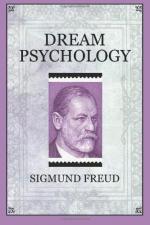This, however, is not the breach in the functional efficiency of our psychic apparatus through which the thoughts forming the material of the secondary mental work are enabled to make their way into the primary psychic process—with which formula we may now describe the work leading to the dream and to the hysterical symptoms. This case of insufficiency results from the union of the two factors from the history of our evolution; one of which belongs solely to the psychic apparatus and has exerted a determining influence on the relation of the two systems, while the other operates fluctuatingly and introduces motive forces of organic origin into the psychic life. Both originate in the infantile life and result from the transformation which our psychic and somatic organism has undergone since the infantile period.
When I termed one of the psychic processes in the psychic apparatus the primary process, I did so not only in consideration of the order of precedence and capability, but also as admitting the temporal relations to a share in the nomenclature. As far as our knowledge goes there is no psychic apparatus possessing only the primary process, and in so far it is a theoretic fiction; but so much is based on fact that the primary processes are present in the apparatus from the beginning, while the secondary processes develop gradually in the course of life, inhibiting and covering the primary ones, and gaining complete mastery over them perhaps only at the height of life. Owing to this retarded appearance of the secondary processes, the essence of our being, consisting in unconscious wish feelings, can neither be seized nor inhibited by the foreconscious, whose part is once for all restricted to the indication of the most suitable paths for the wish feelings originating in the unconscious. These unconscious wishes establish for all subsequent psychic efforts a compulsion to which they have to submit and which they must strive if possible to divert from its course and direct to higher aims. In consequence of this retardation of the foreconscious occupation a large sphere of the memory material remains inaccessible.
Among these indestructible and unincumbered wish feelings originating from the infantile life, there are also some, the fulfillments of which have entered into a relation of contradiction to the end-presentation of the secondary thinking. The fulfillment of these wishes would no longer produce an affect of pleasure but one of pain; and it is just this transformation of affect that constitutes the nature of what we designate as “repression,” in which we recognize the infantile first step of passing adverse sentence or of rejecting through reason. To investigate in what way and through what motive forces such a transformation can be produced constitutes the problem of repression, which we need here only skim over. It will suffice to remark that such a transformation of affect occurs in the course of development (one




